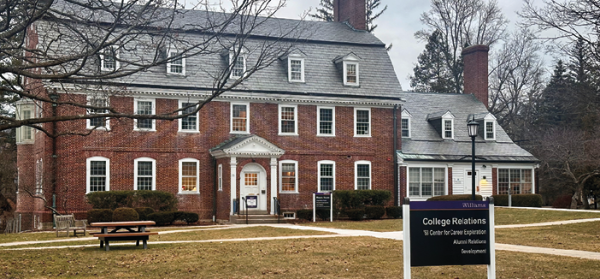
The ’68 Center for Career Exploration will adjust the parameters of the Alumni Sponsored Internship Program (ASIP) for summer 2024, allowing shorter internships to qualify for grants and introducing a new sliding scale for the size of each grant, which will vary according to the length and format of the internship, as well as each student’s financial needs.
This year, internships must be at least four weeks long and involve 140 hours of work to qualify for ASIP funding, according to Leigh Sylvia, the ’68 Center’s director of operations and external relations. The size of each student’s ASIP grant will be determined by a formula and will range between $2,000 and $5,500, depending on the duration, location, and format of the internship. The funding formula will also consider a student’s financial aid status and whether they will have to pay for summer housing.
Prior to this change, all ASIP grants in a given year were the same amount — $5,000 in summer 2023 — and students with full-time internships lasting at least eight weeks were prioritized.
This year’s total pool of ASIP funding will remain roughly the same as that of last year, but now, it will be distributed across more students. “There’s a lot of student interest and demand to have internships,” Executive Director of the ’68 Center Don Kjelleren told the Record. “We have a set budget and can distribute that amongst a lot of students or a few students.”
As student interest in internships has increased, the ASIP program has grown. In 2012, 69 students were awarded ASIP grants, while 203 students were awarded funding last summer, according to data the ’68 Center shared with the Record.
“One of the areas that we really focused on was how we can get the most money to the most students in the most equitable and efficient way possible,” Kjelleren continued. “Students have a wide range of needs, so we have built a … much more sophisticated, personalized, [and] customized approach, rather than a one-size-fits-all funding model.”
Extending smaller grants to students with shorter internships also helps the ’68 Center fund more internships in areas outside of the nonprofit sector, which some of the restricted funds for ASIP grants exclude. “Nonprofits, NGO, and public policy are traditionally unpaid,” Kjelleren said. “That’s why these funds initially existed.”
However, recently, the College has seen greater need for funding directed towards internships in other industries, particularly STEM research, which Kjelleren said are increasingly unpaid. “The trend has been more of not having enough funding in certain areas,” said Dawn Dellea, manager of alumni and parent engagement programs.
Through the changes, the ’68 Center intends to award ASIP grants to a wider variety of summer experiences, Sylvia said. “There are a number of students interested in shorter-term opportunities, and that was once not something we were able to offer through ASIP,” she added.
Last year, the ’68 Center launched a one-time program to distribute Class of ’68 Career Explorer’s Grants of up to $2,000 each. Over 100 students applied for these grants, which supported short-term opportunities including job shadowing and internships. “There were a number of short-term types of experiences that we saw that were really valuable and interesting, and being able to have that be part of ASIP was really important to us,” Sylvia said.
A previous version of this article incorrectly stated that over 100 students received Career Explorer’s Grants from ’68 Center last year. Over 100 students applied for the grants, but only 20 received them.














